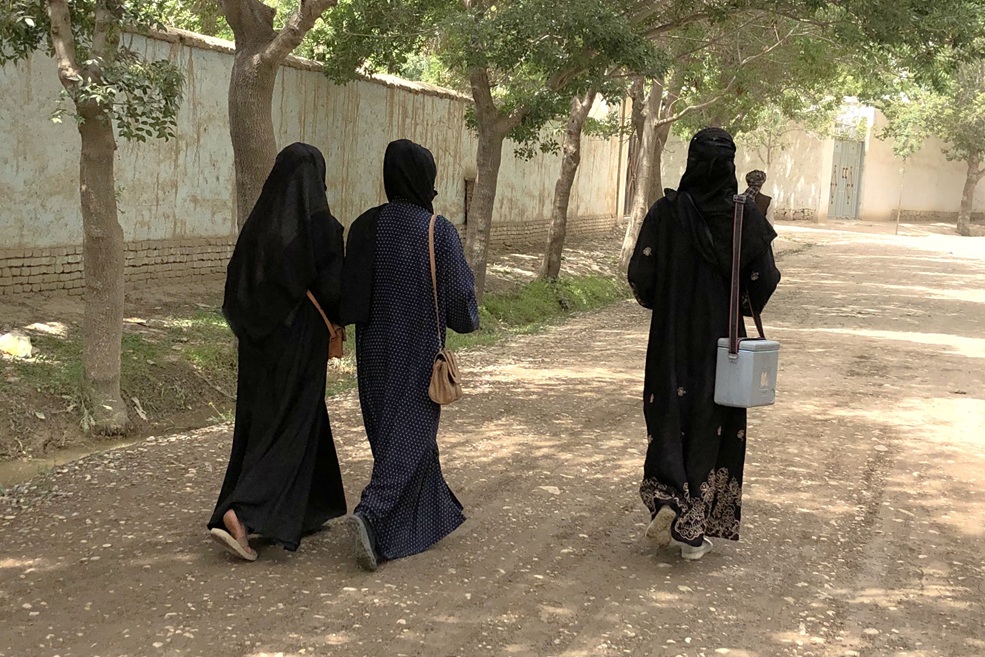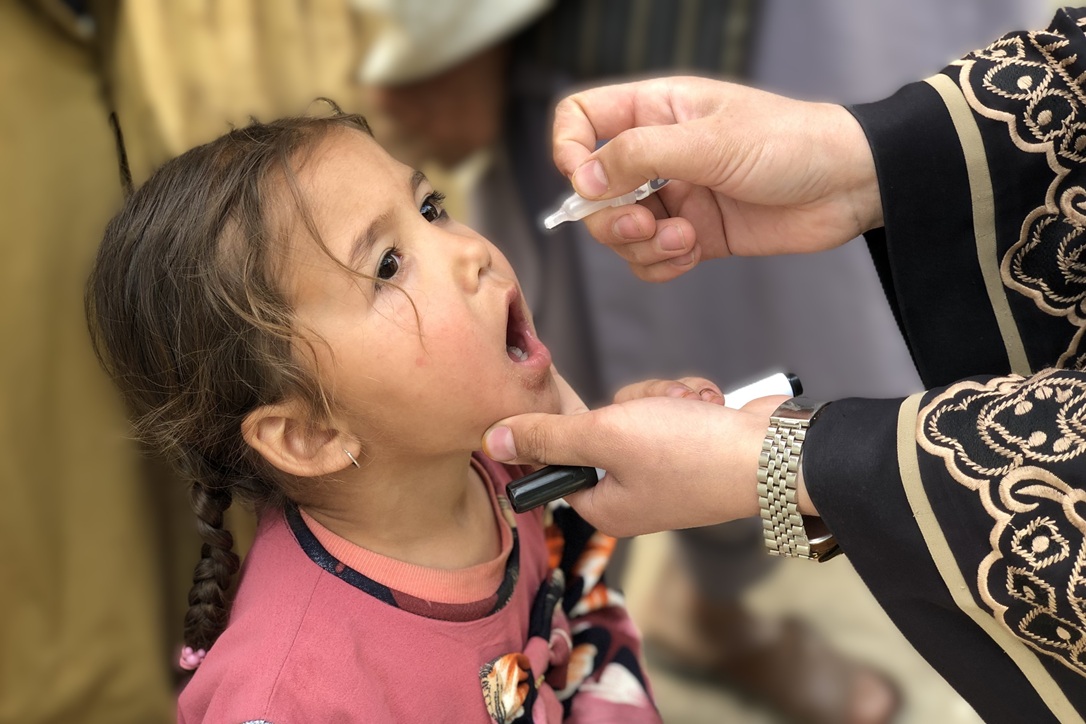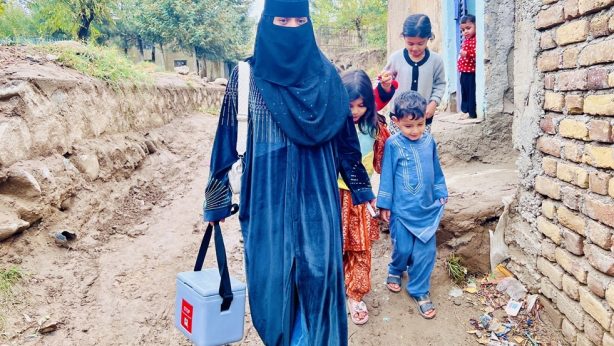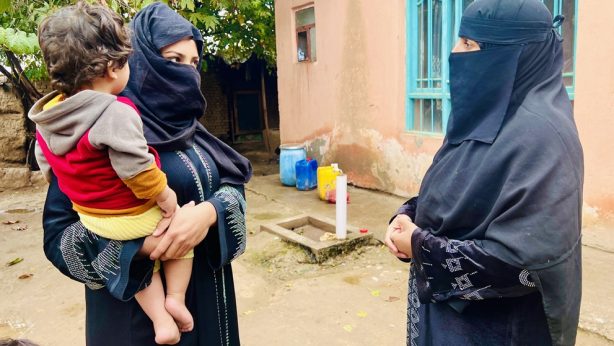Marwa and Abida: Two Brave Volunteers in the Fight Against Polio

Balkh, Afghanistan – Marwa Ahadi and Abida Asadi, two courageous volunteers from the Balkh district of Balkh province, have saved thousands of children from polio in their area.
Their bravery and commitment have brought significant changes in child safety and public health in the region.
While polio has been eradicated in many countries, it still exists in all provinces of Afghanistan, including Balkh, posing a constant threat to children’s lives.
Regular vaccination campaigns are conducted to prevent the spread of the disease and protect children from this dangerous virus.
Marwa and Abida, residents of the Burj Ayaran area in Balkh district, Balkh province, have been part of these campaigns for several years.
Despite various challenges, they continue their work with strong resolve and extraordinary bravery.
Marwa shared that she wanted to do something impactful for her country and people after completing her education.
Growing up in a family that prioritized healthcare, Marwa developed an interest for working in the health sector.
When she learned about the polio vaccination campaigns, she immediately decided to join the fight.
However, she said the path was not easy, with the first major challenge being the widespread misconceptions about the polio vaccine in certain areas.
 Marwa and Abida, residents of the Burj Ayaran area in Balkh district, Balkh province, are among the courageous women who have been actively involved in these campaigns for the past several years, responsibly fulfilling their duties © Polio Free Afghanistan/ 2024/ Abdul Saboor Serat
Marwa and Abida, residents of the Burj Ayaran area in Balkh district, Balkh province, are among the courageous women who have been actively involved in these campaigns for the past several years, responsibly fulfilling their duties © Polio Free Afghanistan/ 2024/ Abdul Saboor Serat
“In remote areas, families were especially reluctant to vaccinate their children, believing the polio vaccine was harmful or religiously unacceptable,” Marwa added.
She says that in order to change such mindsets within families, it was necessary to spend hours talking to them, convincing them that the polio vaccine is vital for their children.
Marwa emphasizes that her job requires both patience and commitment. She believes that convincing even one family to vaccinate their child is a significant accomplishment.
She shares a compelling story in this regard: “There was a mother in a village who, influenced by false rumors, refused to vaccinate her children. I visited her home multiple times and had lengthy discussions with her. Eventually, she agreed to vaccinate her children. A few months later, she told me it was the best decision she had made to protect them from polio.”
Abida, who works alongside Marwa in the fight against polio, has played a vital role as a vaccinator, protecting many children from this debilitating disease.
“My interest in fighting polio began when a child in our neighborhood named Aimal contracted the disease. I witnessed how it paralyzed both of his legs, leaving him a lifelong burden on his family and community,” she recalls.
Abida added that she resolved from that point onward to ensure that no child would ever fall victim to this disease again. She believes that by volunteering in polio vaccination campaigns, she can help prevent such incidents and fulfill her responsibility.
“I’m proud to have vaccinated many children against polio, safeguarding them from this disease. Sadly, in the areas where we work, some families still hold misconceptions, believing the polio vaccine weakens children or causes other health issues. However, our job is not just vaccination, we also have to explain the importance of vaccination to them in a simple way and dispel their doubts,” she adds.
Abida expresses her greatest hope that, one day her efforts and those of thousands of her colleagues will pay off, leading to the permanent eradication of polio from the country.
Marwa and Abida represent the courageous women standing on the front lines in the fight against polio.
Their dedication and perseverance have saved countless children from the risk of polio across various regions.
Despite the challenges they face in their work, their path is clear; they hope that one day Afghanistan will be completely free of polio, allowing future generations to live in a safe and healthy environment.
By Abdul Saboor Serat, Polio Free Afghanistan


